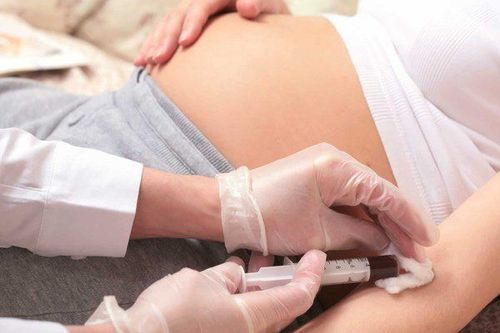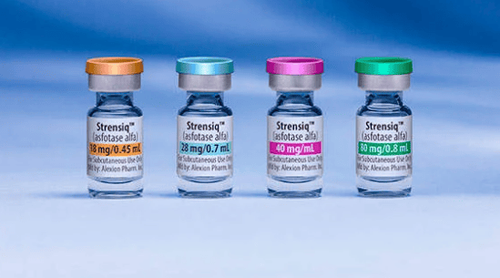This is an automatically translated article.
Articles written by MSc. Han Thi Thu Huong - Vinmec High-Tech Center
Patau syndrome is a rare and serious genetic disorder that greatly affects a child's health even causing death shortly after birth. Children with this syndrome will have problems with the brain, face, and head. To date, there is no specific treatment for this disease.
1. Patau .'s syndrome
Patau syndrome (Trisomy 13 syndrome) is a serious rare genetic disorder caused by an extra copy of chromosome 13 in some or all of the body's cells.
Each cell normally contains 23 pairs of chromosomes, carrying genes inherited from parents but a baby with Patau syndrome will have 3 copies of chromosome 13 instead of 2. This severely disrupts develop normally and in many cases can lead to miscarriage, stillbirth or death of the baby soon after birth.
Babies with Patau syndrome have slow growth in the womb, low birth weight, along with a number of other serious medical problems. Patau syndrome occurs in about 1:5000 births. The risk of having a baby with this syndrome increases with the age of the mother.
More than 9 out of 10 babies born with Patau syndrome may die within the first year. About 1 in 10 babies with less severe symptoms, such as partial trisomy 13 or mosaicism, live more than a year.
2. Manifestations and symptoms

Trẻ mắc hội chứng Patau thường có bất thường ở mặt-sứt môi và vòm miệng
Babies with Patau syndrome can experience a wide range of health problems. A baby's growth in the womb is often restricted, leading to low birth weight and 8 out of 10 births with serious heart defects.
The brain is not usually divided into 2 halves, only a single ventricle (Holoprosencephaly). This is a complex, abnormal brain malformation resulting from the absence or incomplete division of the cerebral hemispheres and often both anterior cerebral malformation and accompanying facial abnormalities:
Cleft lip and palate mouth; One or both eyes are abnormally small (microphthalmia); Absence of one or both eyes (anophthalmia); Short distance between eyes (hypotelorism); The development of the nasal passages is problematic. Other abnormalities of the face and head include:
Head smaller than normal (microcephaly); No scalp (cutis aplasia); Ear defects and deafness; Capillary haemangiomas appear. Patau syndrome can also cause other problems, such as:
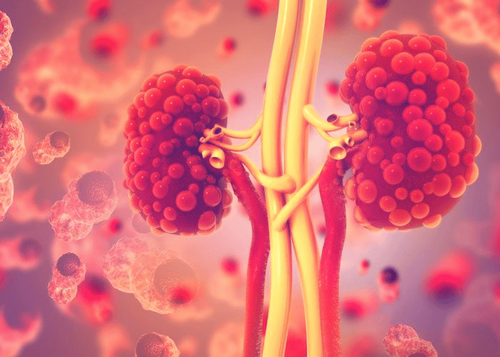
Hội chứng Patau có thể gây ra u nang ở thận
Abdominal wall defect due to not fully developed in the womb, resulting in the intestine being outside the body, covered only by a membrane (exomphalos or omphalocoele); Abnormal cysts in the kidney; Abnormally small penis in boys; The clitoris is more enlarged in girls; Hand and foot abnormalities such as extra fingers or toes (polydactyly).
3. Causes of Patau .'s syndrome
Having 3 copies of chromosome 13 usually occurs due to random occurrence during gamete formation and fertilization, specifically because the chromosomes do not separate during cell division. Most cases are not hereditary.
In most cases of Patau syndrome, the baby has an extra copy of chromosome 13 in all of the body's cells.
In about 1:10 cases of Patau syndrome, genetic material is rearranged between chromosome 13 and another chromosome known as a chromosomal translocation. This abnormality can be hereditary or new.
A small number of children with Patau syndrome (about 1:20) have an extra chromosome 13 in only some cells, while others are normal. The cases of mosaicism are usually less severe than those of the homogeneous type. The severity of the disease depends on the number and type of extrachromosomal cells, which can range from mild to severe.
4. Screening for Patau . Syndrome
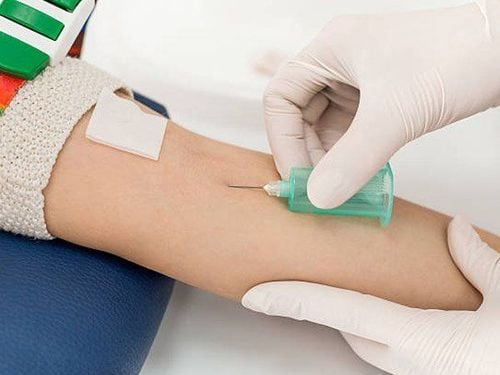
Xét nghiệm tầm soát phát hiện Hội chứng Patau
Pregnant women are recommended to be screened for Patau syndrome, as well as Down syndrome (trisomy 21) and Edwards syndrome (trisomy 18), between 10 and 14 weeks of pregnancy.
There are two types of prenatal tests to detect Patau Syndrome in the fetus: screening tests and diagnostic tests.
Screening tests: commonly used are Double test (test and quantify free β-hCG and PAPP-A in the blood of pregnant women), NIPT (analysis of free fetal DNA in maternal blood) combined ultrasound. Screening tests only help estimate the risk of Patau syndrome in the fetus. Diagnostic tests: Chromosome formula, FISH, QF-PCR from amniotic fluid samples and chorionic villus biopsies. Diagnostic tests help to accurately determine the presence or absence of Patau syndrome in the fetus.
5. Treatment of Patau .'s syndrome
There is no specific method to treat Patau syndrome. Because of the serious health problems a newborn baby with the syndrome will have, doctors often focus on minimizing discomfort and making sure the baby can feed.
For the small number of infants with Patau syndrome who survive the first few days of life, care will depend on the child's specific symptoms and needs. If a baby is diagnosed with Patau syndrome, before birth or shortly after, parents should seek advice and support from a medical institution.
6. Genetic testing for parents
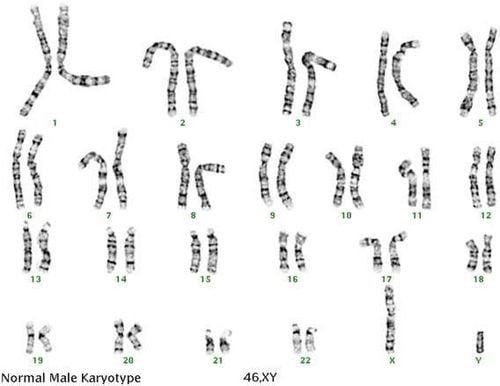
Xét nghiệm công thức nhiễm sắc thể cho cha mẹ đối với trường hợp em bé bị hội chứng Patau do chuyển đoạn nhiễm sắc thể (vì có thể do di truyền)
If the baby has Patau syndrome due to chromosomal translocation, both parents will need to have chromosomal testing. Genetic testing is done to help parents plan for future pregnancies, not as part of the decision-making process for a current pregnancy.
Test results will allow a more accurate assessment of the possibility of the syndrome affecting future pregnancies. Other family members may also be affected and should be checked.
To ensure the health of the fetus, pregnant women should have regular antenatal check-ups, on schedule, perform the necessary screening tests according to the doctor's advice to have timely handling in case the fetus has any abnormalities. usually health.
Double Test is one of the prenatal screenings included in the 12-week Maternity package at Vinmec, helping to detect abnormal problems during pregnancy and protect the health of mother and baby. Depending on the stage of pregnancy, pregnant women will be consulted by the doctor for appropriate tests to check the development status of the baby. Besides the 12-week maternity package, Vinmec also has other maternity packages including:
Maternity care program 2019 – Labor Maternity care program 2019 – 36 weeks Maternity care program 2019 – 27 weeks To register for an examination at Vinmec International General Hospital, you can contact the nationwide Vinmec Health System Hotline, or register online HERE.
References: nhs.uk, rarediseases.info.nih.gov




